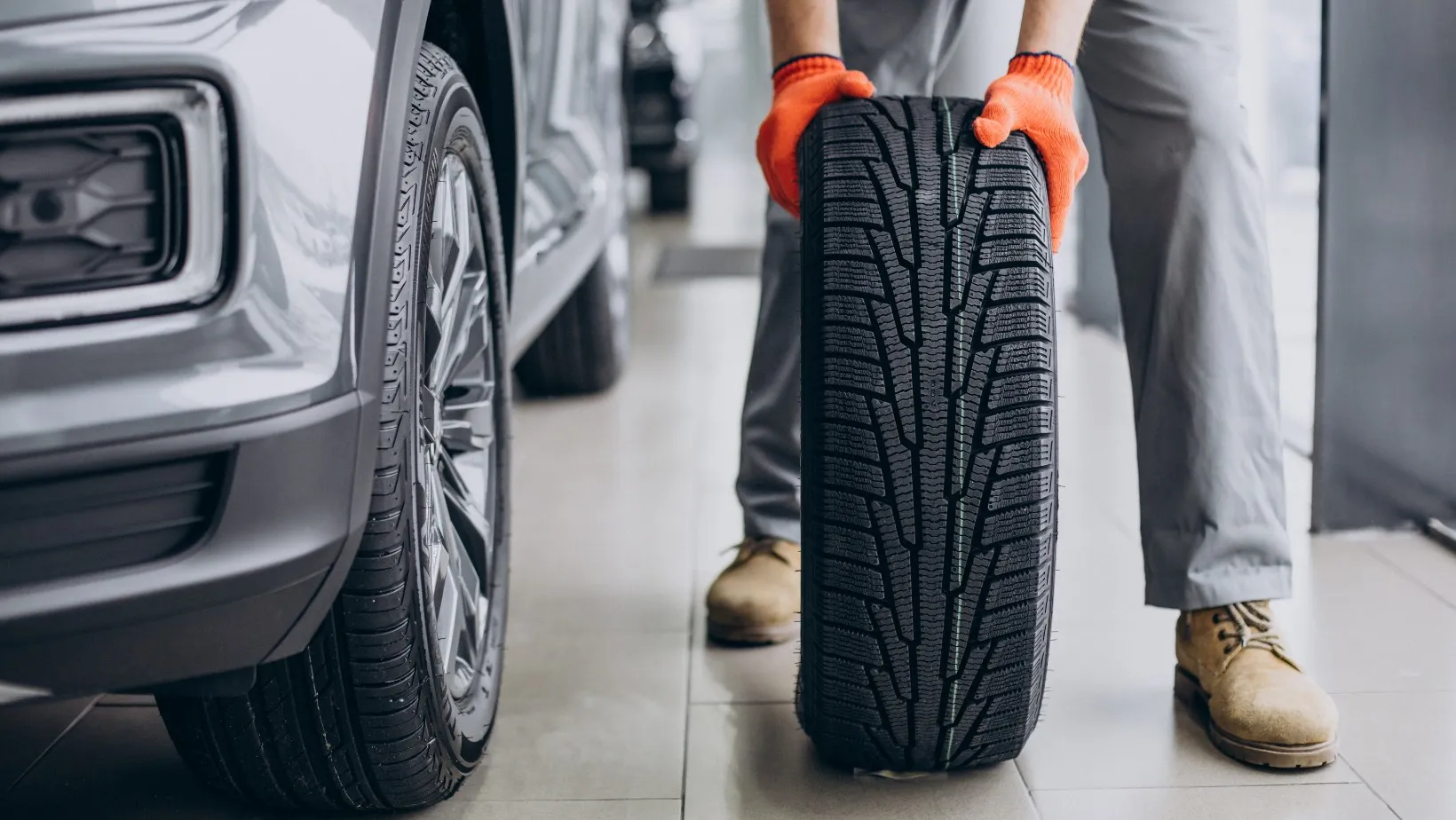
Tyres wear day by day as your using your car, it’s unavoidable but there are things that you should look out for. You should also look out for other damage to your tyres to make sure that they are safe, things such as uneven wear which is usually caused by misalignment, bulges, cuts and foreign objects should be looked at.
Tyre pressure and tread depth:
Having the correct wheel inflation levels is vital as your wheels need to support the weight of your car and also its passengers. Required tyre inflation varies from car model to car model, so you need to check your specific car manufacturer’s handbook. While the legal minimum tread depth in Ireland is 1.6mm7, this is not recommended especially for adverse weather. The minimum tread should be at least 3mm, but we would recommend between 4mm and 8mm for maximum safety. Keep in mind that in colder months, as the temperature drops, so does your tyre pressure. So, if you haven’t inflated your tyres over the last few months, there is a chance they have less pressure than you think.
For more information on Tyre Safety see the RSA Website linked here.
What kind of tyres should I buy? Types of Tyres
1. Winter tyres have tread patterns that are specially designed to bite into snow and ice. They’re made from softer rubber than normal tyres and they stay more flexible in cold weather. This means the tyre can grip the road better in snow or icy conditions. Winter tyres are labelled ‘MS’ or ‘M&S’ (Mud and Snow) with the alpine symbol.
2. Summer tyres are most commonly used in Ireland. This does not mean that they are for use during the summer only—it’s merely the term used to separate them from winter tyres in countries where there is a practical need and sometimes a legal requirement to fit winter tyres.
3. All-season tyres are a cross between summer and winter tyres and are designed to cope with all sorts of conditions, including dry roads and rain. They are not specially designed for any one kind of weather condition. All-season tyres carry the marking MS or M&S (Mud and Snow) but without the alpine symbol.
Tyre Maintenance
Correct Inflation Pressure
Correct inflation pressure is important, as the pressurised air inside your tyre has to support the weight of your vehicle and its load. Inflation pressure can also affect your vehicle’s fuel efficiency. Tyre pressures vary depending on the vehicle model and the load being carried. We recommend that you go to your local service station and check your tyre pressures regularly against the manufacturer’s specifications for your vehicle. You’ll find the inflation specifications in your vehicle owner’s handbook.
Wheel Alignment & Balancing
You may hear the terms ‘wheel alignment’ and ‘wheel balancing’ used interchangeably, but they are separate issues, both important in the upkeep of your tyres and vehicle. Wheel alignment consists of adjusting the angles of the wheels so that they are perpendicular to the ground and parallel to each other. Aligning your wheels can help maximise tyre life and ensure that your vehicle drives straight and true when on level surfaces.











